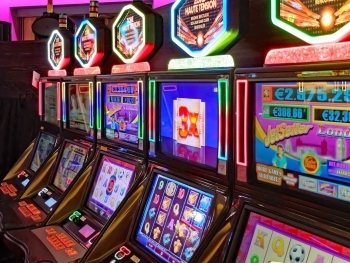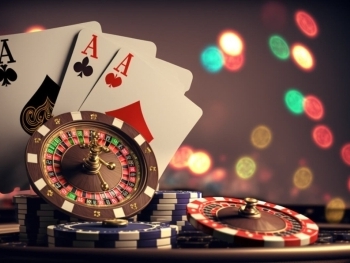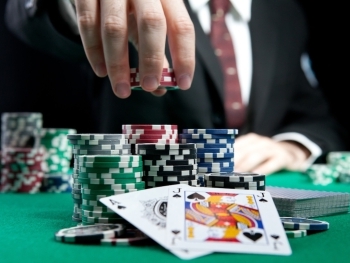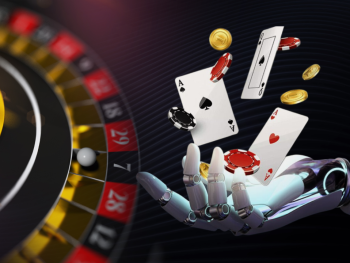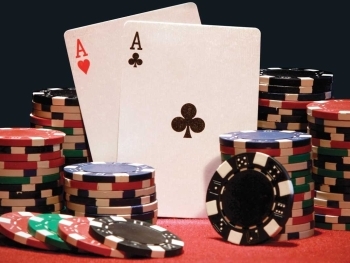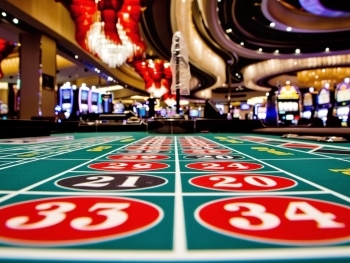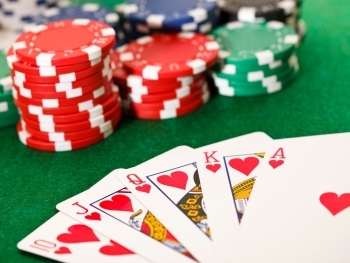Gambling has been a popular pastime for centuries, offering the thrill of risk and the possibility of financial gain. However, while some people gamble responsibly, others fall into patterns of addiction that have serious psychological effects. This article explores the psychological impact of gambling, including its effects on the brain, emotional well-being, relationships, and overall mental health.
The Brain and Gambling: How It Affects Neurochemistry
Gambling engages the brain’s reward system, releasing dopamine, a neurotransmitter associated with pleasure and motivation. The anticipation of a possible win triggers a surge of dopamine, reinforcing the behavior. This process is similar to the way drugs affect the brain, making gambling highly addictive for some individuals.
Over time, frequent gambling can alter brain chemistry. The brain adapts by reducing dopamine production, leading gamblers to seek riskier bets or gamble more frequently to achieve the same level of excitement. This phenomenon, known as tolerance, contributes to gambling addiction and compulsive behavior.
Psychological and Emotional Effects of Gambling
1. Euphoria and Excitement
Winning can trigger intense joy and excitement, reinforcing the desire to continue gambling. The highs of gambling can create a psychological dependency on the activity for pleasure and emotional escape.
2. Anxiety and Stress
The uncertainty of gambling outcomes can lead to increased anxiety, particularly for those who gamble with money they cannot afford to lose. The pressure to recover losses can further elevate stress levels, creating a cycle of compulsive behavior.
3. Depression and Hopelessness
Losing streaks can cause profound emotional distress, leading to feelings of failure and hopelessness. Many problem gamblers experience depression, which can exacerbate their gambling habits as they attempt to chase losses or numb emotional pain.
4. Guilt and Shame
Many problem gamblers feel deep guilt, especially if their gambling habits negatively impact their loved ones. This guilt can contribute to low self-esteem and self-destructive behavior.
5. Impaired Decision-Making
Gambling addiction impairs cognitive function, affecting an individual’s ability to make rational decisions. Problem gamblers often engage in cognitive distortions, such as the “gambler’s fallacy” (believing that past losses increase the chance of a future win) and illusion of control (thinking they can influence random outcomes).
Gambling and Mental Health Disorders
Gambling addiction, also known as gambling disorder, is recognized as a mental health condition in the Diagnostic and Statistical Manual of Mental Disorders (DSM-5). It is often associated with other mental health conditions, such as:
- Substance Abuse Disorders: Many problem gamblers also struggle with drug or alcohol addiction.
- Anxiety Disorders: Chronic gambling can contribute to heightened anxiety and panic attacks.
- Depression: The emotional toll of gambling losses can lead to major depressive episodes.
- Bipolar Disorder: Individuals with bipolar disorder may be more prone to risky gambling behavior during manic episodes.
Social and Relationship Consequences
1. Strained Relationships
Gambling addiction can lead to conflicts with family and friends. Financial losses, dishonesty about gambling habits, and neglect of responsibilities can damage relationships beyond repair.
2. Financial Instability
Many problem gamblers accumulate significant debt, often borrowing money from loved ones or engaging in illegal activities to fund their addiction. Financial stress can lead to family breakdowns and even homelessness in extreme cases.
3. Work and Academic Performance Decline
Compulsive gambling can lead to absenteeism, lack of concentration, and reduced productivity at work or school. This can result in job loss or academic failure, further deepening the cycle of distress.
Overcoming Gambling Addiction
For those struggling with problem gambling, there is hope. Various strategies and treatments can help individuals regain control of their lives:
- Cognitive Behavioral Therapy (CBT): CBT helps individuals identify and change unhealthy thought patterns related to gambling.
- Support Groups: Programs like Gamblers Anonymous provide peer support and guidance for overcoming addiction.
- Self-Exclusion Programs: Many casinos and online gambling sites offer self-exclusion programs to help individuals limit access to gambling.
- Financial Counseling: Learning how to manage money effectively can reduce financial stress and prevent relapse.
- Medication: In some cases, medications such as antidepressants or mood stabilizers may help manage underlying mental health conditions associated with gambling addiction.
While gambling can be an enjoyable activity for some, it carries significant psychological risks, particularly for those who develop compulsive gambling behaviors. Understanding the mental and emotional effects of gambling is crucial for recognizing problem gambling and seeking appropriate help. If you or someone you know is struggling with gambling addiction, professional support can make a meaningful difference in restoring mental well-being and overall quality of life.

